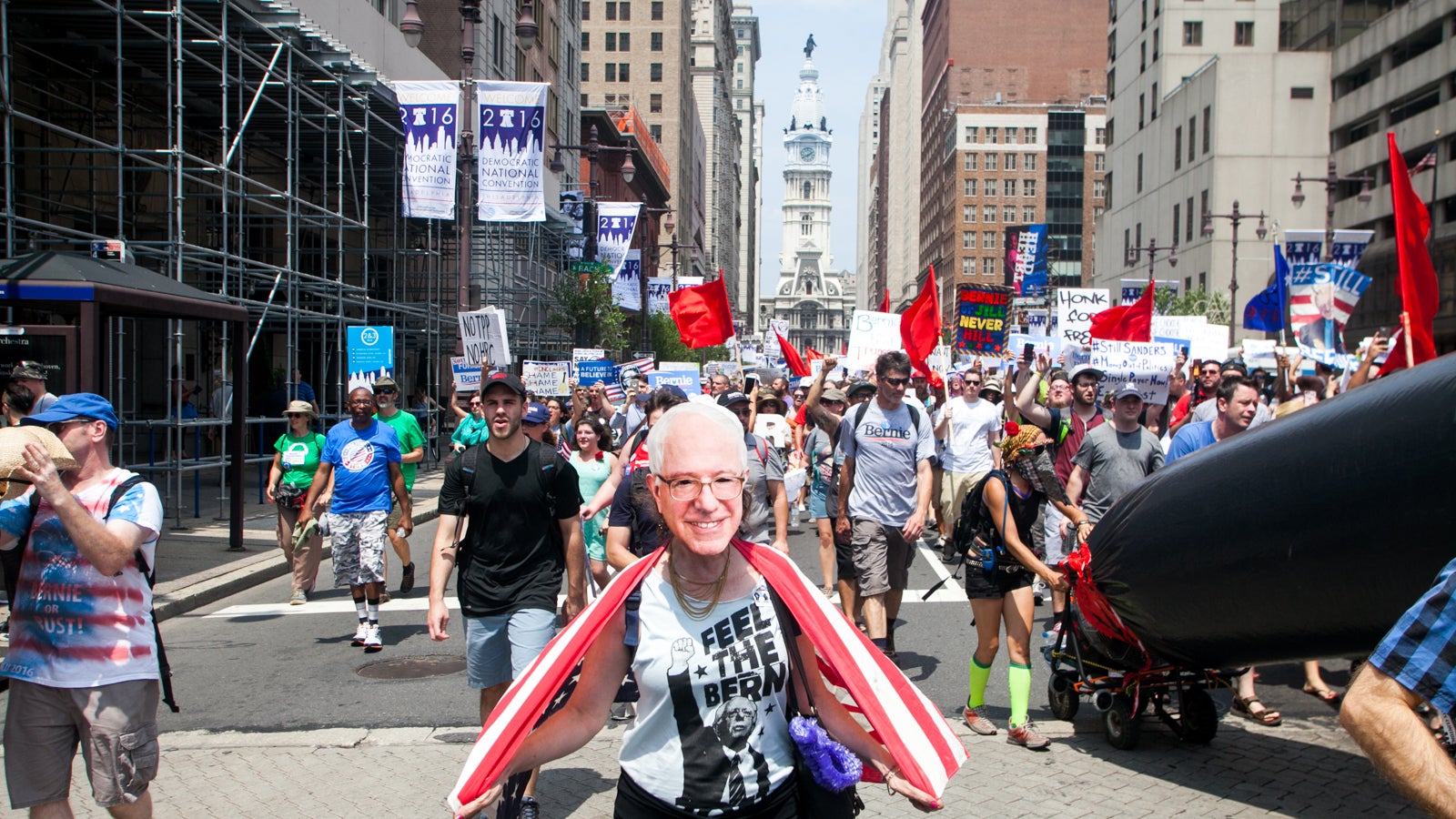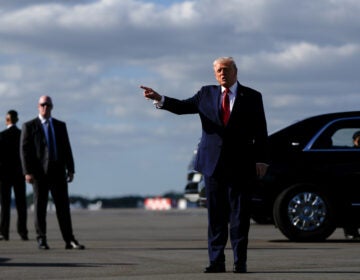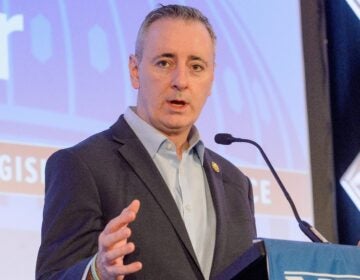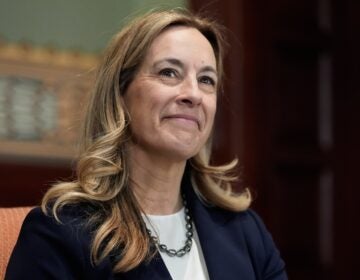Will millennials be lured by Clinton’s talk of free college?

Pro-Bernie Sanders demonstrators march down South Broad Street during the Democratic National Convention. (Brad Larrison for NewsWorks)
About a week after Hillary Clinton accepted the Democratic nomination for president, Pasquale Cippolloni got an email from her campaign asking what issues matter to him as a millennial and as someone who’d been a delegate for Bernie Sanders.
Cippolloni said he was stumped. He still is.
“That’s a very difficult question solely for the fact [that] the thing that got people so rallied behind Bernie was the clear perception that he cared,” he said.
Cippolloni, a Temple University student who is leaning toward Clinton now, said it’s difficult to say which issues could get his more die-hard Sanders friends on board.
That’s the challenge facing the Clinton campaign this week as it kicks off an effort to reach millennial voters.
A recent poll sponsored by left-leaning organization NextGen Climate found 48 percent of likely young voters in Pennsylvania and other swing state backed Clinton in August. Twenty-three percent supported Republican nominee Donald Trump. The rest were split between third-party candidates Jill Stein and Gary Johnson, as well as the prospect of not casting a ballot for president at all.
According to the campaign, Clinton will speak to millennial voters in Philadelphia today about her plan for free community college and relieving the burden of student loan debt — a plan she created with Sanders who pushed for free college tuition during the primary season.
“It will guarantee that the children of any family [in] this country with an annual income of $125,000 a year or less — 83 percent of our population — will be able to go to a public college or university tuition-free,” Sanders said during his speech at the Democratic National Convention in July. “That proposal also substantially reduces student debt.”
But is that the message Sanders’ supporters want to hear?
“I don’t think I’ll ever see free college in my lifetime, which would have been helpful,” said Sabrina Fedrigo, a Sanders delegate who lives in Montgomery County and is struggling to pay off her student loans.
Fedrigo is not ready to vote for Clinton yet, but likes the fact she’s taking up the issue. She said the next step if Clinton is elected would be holding her accountable.
“That gives us millennials and people younger than us the go-ahead to push her to make her do it,” Fedrigo said. “And call our local and state people like, ‘Listen, do you support this like Hillary Cinton does?'”
But while talking free college may get more Sanders supporters to the polls, many said it won’t get them excited enough to hit the campaign trail for Clinton.
“I think majority of us are realistic and understand defeating right-wing populism and quasi-fascism is better than holding our heads high,” said Amanda McIllmurray, a Sanders delegate from Philadelphia who plans to vote for Clinton only if polls show a tighter race between her and Trump in Pennsylvania. “But I won’t volunteer for her campaign or put effort into it.”
Yasmeen Kaboud, a junior at the University of Pennsylvania, feels the same way.
“By being a Sanders supporter for so long and being his delegate at the convention, I just can’t really bring myself to spend an extended amount of time campaigning for Hillary specifically,” said Kaboud. “I have no problem campaigning against Trump, but I don’t see myself campaigning for Hillary Clinton.”
WHYY is your source for fact-based, in-depth journalism and information. As a nonprofit organization, we rely on financial support from readers like you. Please give today.




